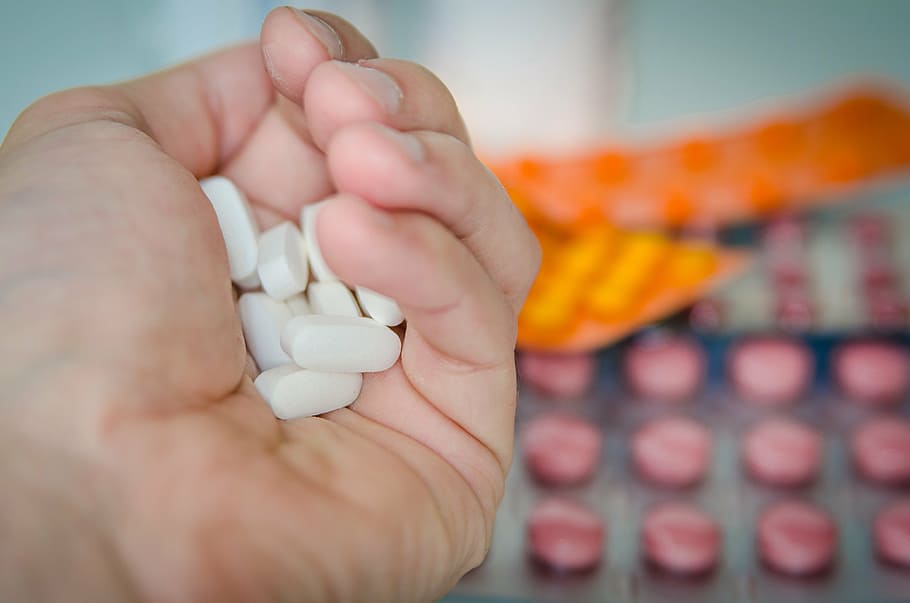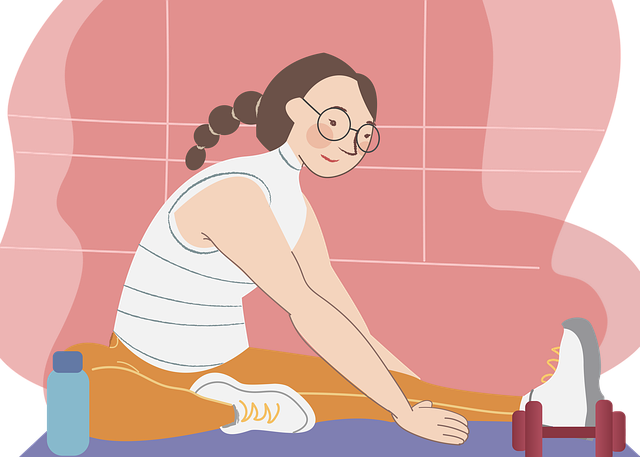Monthly Archives: March 2023
Exploring the Influence of Astrological Signs on Your Well-Being

Astrology has been practiced for centuries and it is based on the belief that celestial bodies and their movements can impact human affairs and the natural world. For example, The Sun in Scorpio and Moon in Leo reading. Astrological signs are based on the position of the sun at the time of a person’s birth and are said to provide insights into their personality, relationships, and overall well-being. In this article, we will explore the influence of astrological signs on your well-being and how you can use this knowledge to improve your life.
Understanding Astrological Signs
Astrological signs are based on the position of the sun at the time of a person’s birth. There are 12 signs in total, each with their own unique characteristics and traits. The signs are divided into four elements – fire, earth, air, and water – and three modalities – cardinal, fixed, and mutable. Each sign is associated with a specific element and modality, which can provide insights into a person’s personality, strengths, and weaknesses.
The Fire Signs
The fire signs – Aries, Leo, and Sagittarius – are known for their passion, creativity, and energy. They are often seen as natural leaders and are driven by their desire for success and recognition.
The Earth Signs
The earth signs – Taurus, Virgo, and Capricorn – are practical, reliable, and grounded. They are known for their hard work, determination, and loyalty.
The Air Signs
The air signs – Gemini, Libra, and Aquarius – are intellectual, social, and communicative. They are known for their ability to think critically and their love of learning.
The Water Signs
The water signs – Cancer, Scorpio, and Pisces – are emotional, intuitive, and sensitive. They are often seen as creative and artistic and have a strong connection to their feelings and the world around them.
The Impact of Astrological Signs on Your Well-Being
While astrology is not a science and there is no empirical evidence to support its claims, many people believe that their astrological sign can impact their well-being. Here are some ways in which astrological signs are thought to influence well-being:
Personality Traits
Your astrological sign can provide insights into your personality traits, such as your strengths and weaknesses, your likes and dislikes, and your overall temperament. By understanding these traits, you can gain a better understanding of yourself and your needs, which can help you make better decisions and improve your well-being.
Relationships
Astrology is often used to analyze compatibility between two people based on their astrological signs. While this is not a foolproof method, it can provide insights into the dynamics of a relationship and help you better understand your partner’s needs and tendencies.
Health
Astrology is sometimes used to diagnose and treat health conditions based on a person’s astrological sign. While there is no scientific evidence to support this practice, some people believe that their sign can provide insights into their overall health and well-being.
Career
Your astrological sign can also provide insights into your career path and the types of jobs that may be best suited for your skills and personality. By understanding your strengths and weaknesses, you can make more informed decisions about your career and find fulfillment in your work.
Using Astrology to Improve Your Well-Being
While astrology is not a substitute for medical or professional advice, it can provide insights into your well-being and help you make more informed decisions. Here are some ways in which you can use astrology to improve your well-being:
Identify Your Strengths and Weaknesses
By understanding your astrological sign and the traits associated with it, you can identify your strengths and weaknesses and use this knowledge to make better decisions about your life
Set Realistic Goals
Astrology can provide insights into your natural inclinations and talents, which can help you set realistic goals for yourself. By understanding your strengths and weaknesses, you can identify areas where you excel and focus your energy on achieving goals that are in line with your natural abilities.
Improve Your Relationships
By understanding the astrological signs of those around you, you can gain insights into their needs and tendencies, which can improve your relationships. Whether it’s a romantic partner, friend, or colleague, astrology can provide insights into the dynamics of your relationship and help you communicate more effectively.
Find Fulfillment in Your Career
Your astrological sign can provide insights into the types of careers that may be best suited for your skills and personality. By understanding your strengths and weaknesses, you can find a career path that aligns with your natural talents and interests, which can lead to greater fulfillment and success.
Practice Self-Care
Astrology can provide insights into your natural tendencies and needs, which can help you practice better self-care. Whether it’s through meditation, exercise, or other self-care practices, astrology can provide insights into the types of activities that are best suited for your personality and well-being.
Read also: The Value of Health to Our Lives
Conclusion
While astrology is not a science and there is no empirical evidence to support its claims, many people believe that their astrological sign can provide insights into their well-being. By understanding your astrological sign and the traits associated with it, you can gain insights into your personality, relationships, and overall well-being. Whether you’re looking to improve your relationships, find fulfillment in your career, or practice better self-care, astrology can provide insights and guidance to help you lead a happier, healthier life.
Dental Care: What Your Dentist Wants You to Know About Oral Health

Good oral hygiene is an important part of overall health and wellbeing. It involves regular brushing, flossing, and rinsing of the teeth to keep them clean and free from disease-causing bacteria. At One Dental (dentist Walter St.), your friendly dentist will tell you that proper oral hygiene helps prevent tooth decay, gum disease, and other dental problems that can affect your overall health. Good oral hygiene also helps maintain a bright smile and fresh breath. Taking care of your teeth is essential for maintaining good oral health and should be an important part of everyone’s daily routine.
Common Oral Diseases & How to Avoid Them
There are several common oral diseases that people may encounter, but many of them are preventable with good oral hygiene habits. Here are some of the most common oral diseases and how to avoid them:
- Tooth Decay: Bacteria in the mouth produce acid which leads to erosion of the tooth enamel, resulting in tooth decay. This can cause issues such as cavities, tooth sensitivity and even loss of teeth if not treated in time. To avoid tooth decay, brush your teeth twice daily, floss daily, avoid sugary foods and drinks, and regular visits to the dentist.
- Gum Disease: Gum disease is caused by plaque buildup on the teeth and gums, leading to inflammation and infection. It can result in gum recession, tooth loss, and even systemic health problems. Prevention includes good oral hygiene habits (brushing and flossing) and regular visits to your dentist.
- Oral Cancer: Oral cancer can affect the lips, tongue, throat, and other parts of the mouth. It often goes undetected until later stages, so it’s important to schedule regular oral cancer screenings with your dentist. Avoid tobacco and excessive alcohol consumption, as these are major risk factors for oral cancer.
- Bad Breath: Bad breath, also known as halitosis, can be caused by poor oral hygiene, certain foods, and underlying health conditions. To prevent bad breath, brush and floss regularly, use mouthwash, avoid tobacco and alcohol, and stay hydrated.
- Tooth Sensitivity: Tooth sensitivity can be caused by enamel erosion, gum recession, or tooth decay. To avoid tooth sensitivity, practice good oral hygiene habits, use a soft-bristled toothbrush, avoid acidic foods and drinks, and consider using a toothpaste designed for sensitive teeth.
Read also: What Did Your Dentist Say About Mouthwash?
What Your Dentist Can Tell You About Brushing & Flossing Techniques
Good dental hygiene is essential for maintaining healthy teeth and gums. But how do you know which brushing and flossing techniques are right for you? Your dentist can provide valuable advice on the best brushing and flossing techniques to use based on your individual needs. From recommending specific toothbrushes to suggesting a schedule for brushing, your dentist can help you understand the importance of proper oral hygiene and how to achieve it. They can also explain why certain products may be better suited to your personal needs than others, such as electric toothbrushes or water flossers. With the right advice from your dentist, you can maintain healthy teeth and gums with ease!
Ideas to boost Your Health and Well-being
Although they are linked, health and well being are not the same thing. Let’s take them in order and discuss them individually. Meanwhile, to be mentally healthy means that one’s intellect is sharp, capable, and disease-free. When our mental health is good, we are less likely to let the inevitable stresses, frustrations, anxieties, and depressions of daily life get the best of us. Our physical and emotional well-being are inextricably linked and have far-reaching effects on our daily lives.

Three Strategies for Improving your Health and Well-being
Including some new practices into your routine is all it takes to improve your well-being.
Build Relationships
Human connection is essential to our physical and psychological well-being. We need each other since we are social creatures. We’re social creatures that thrive when we’re all together. In terms of natural selection, our very existence was at stake.
Go Around and Get Some Exercise
You don’t have to go all out right away to enjoy health benefits from exercise. Running for as little as 15 minutes or walking for an hour a day can reduce the risk of depression by 26%.
Develop your Abilities
Learning new things throughout your life is not only a good way to pass the time, but also a great method to keep your health in check.
Why Do Older Men Use Potency Pills More Than Younger Men?

Potency pills have become increasingly popular among men of all ages. However, studies have shown that older men tend to use potency pills more frequently than younger men. There are several reasons why this may be the case, ranging from age-related physiological changes to cultural factors. In this article, we will explore some of the reasons why older men use potency pills more frequently than younger men.
Physiological Changes
As men age, their bodies undergo several physiological changes that can impact their sexual health. One of the most common changes is a decrease in testosterone levels. Testosterone is a hormone that plays a crucial role in male sexual function. As testosterone levels decline, men may experience a decrease in libido, erectile dysfunction, and other sexual health issues. Potency pills can help alleviate these issues by increasing blood flow to the penis and facilitating erections.
Cultural Factors
Another reason why older men may use potency pills more frequently than younger men is cultural. Older generations may have grown up in a time when discussing sexual health was taboo, and seeking treatment for sexual health issues was stigmatized. This may have led to a reluctance to seek medical treatment for sexual health issues, leading older men to turn to over-the-counter potency pills instead.
Accessibility
Potency pills like kamagra kaufen are widely available over-the-counter or online, making them more accessible to older men who may be reluctant to seek medical treatment. This accessibility may also make potency pills more appealing to younger men who are looking for a quick fix for sexual health issues, rather than seeking medical treatment.
Privacy
Potency pills can be purchased online or over-the-counter, providing men with a level of privacy that they may not receive with traditional medical treatment. For older men who may feel embarrassed or ashamed to discuss sexual health issues with a doctor, this privacy can be appealing.
Stress
Stress can have a significant impact on sexual health. Older men may be more likely to experience stress related to work, finances, and family, which can contribute to sexual health issues. Potency pills can help alleviate the symptoms of stress-related sexual health issues, allowing older men to enjoy a fulfilling sex life.
Conclusion
In conclusion, there are several reasons why older men use potency pills more frequently than younger men. Physiological changes, cultural factors, accessibility, privacy, and stress can all contribute to this trend. While potency pills can be effective in alleviating sexual health issues, it is essential to seek medical treatment for underlying health issues that may be contributing to these issues. If you are experiencing sexual health issues, it is essential to speak with your doctor to determine the best course of treatment.
What Did Your Dentist Say About Mouthwash?

Maintaining good oral health is important to ensure that your teeth and gums stay healthy. One way to achieve this is by using mouthwash as part of your oral hygiene routine. However, there has been some debate about the effectiveness of mouthwash, and many people are unsure whether it is necessary or not. So, what did your dentist say about mouthwash? Let’s dive in and explore the topic further.
Read also: The Distinction Between Well-being and Health
The Benefits of Using Mouthwash
Mouthwash is an antiseptic solution that can be used to help kill germs in the mouth. It can also freshen your breath and help prevent tooth decay and gum disease. Many dentists recommend using mouthwash as part of a good oral hygiene routine, in addition to brushing and flossing regularly.
Mouthwash can be particularly useful for people who have braces or other orthodontic appliances, as it can help to remove food particles that may be stuck between the teeth and wires. Additionally, mouthwash can help to reduce the risk of cavities in hard-to-reach areas, such as the back of the mouth.
Different Types of Mouthwash
There are several different types of mouthwash available on the market, each with its own unique benefits. Some mouthwashes contain fluoride, which can help to strengthen teeth and prevent cavities. Others are designed to whiten teeth, freshen breath, or reduce sensitivity.
It is important to choose a mouthwash that is right for your individual needs. If you are unsure which type of mouthwash to use, consult with your dentist, who can recommend a product that is tailored to your specific oral health needs.
Using Mouthwash Correctly
To get the most benefit from using mouthwash, it is important to use it correctly. Start by brushing and flossing your teeth as normal, then rinse your mouth with a small amount of mouthwash. Swish the mouthwash around your mouth for at least 30 seconds, then spit it out.
Avoid eating or drinking anything for at least 30 minutes after using mouthwash, as this can dilute the effects of the solution. Additionally, do not swallow the mouthwash, as this can be harmful if ingested in large quantities.
The Potential Risks of Using Mouthwash
While there are many benefits to using mouthwash, there are also some potential risks to be aware of. Some mouthwashes contain alcohol, which can be drying to the mouth and may increase the risk of oral cancer with long-term use. However, there are many alcohol-free types of mouthwash available on the market, which can be a safer alternative for people who are concerned about this risk.
Additionally, some people may be allergic to certain ingredients in mouthwash, so it is important to read the label carefully before using a new product. If you experience any symptoms of an allergic reaction, such as swelling or difficulty breathing, stop using the mouthwash immediately and seek medical attention.
Conclusion
So, what did your dentist say about mouthwash? In general, most dentists recommend using mouthwash as part of a good oral hygiene routine. Mouthwash can help to kill germs, freshen your breath, and prevent tooth decay and gum disease. However, it is important to choose the right type of mouthwash for your individual needs and to use it correctly to get the most benefit.
If you have any questions or concerns about using mouthwash, talk to your dentist, who can provide you with more information and recommend a product that is right for you.




